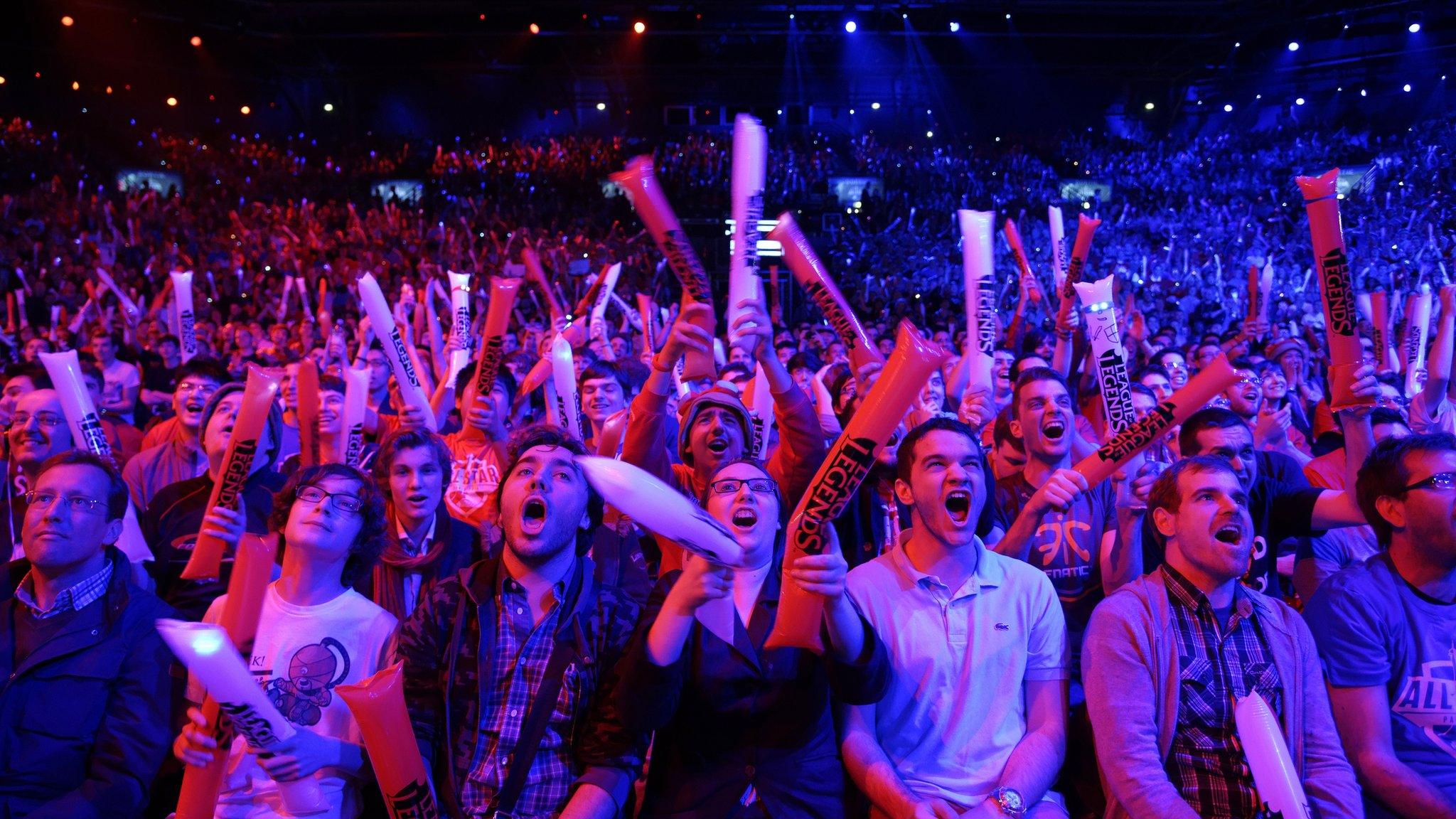Esports degree: 'I won't spend three years playing games'
- Published
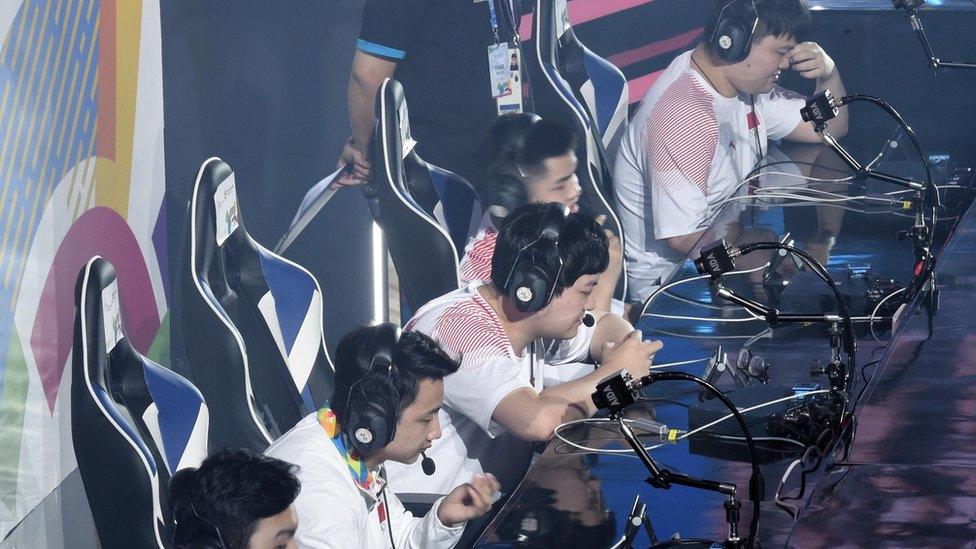
Esports featured at the 2018 Asian Games as a demonstration sport, and will be a full event in 2022
Esports is big business, with the global economy forecast by analysts to reach $900m (£685m) by the end of the year, external. Riding the wave of this rapidly expanding industry is Staffordshire University, which has just begun teaching undergraduate and masters courses in the subject.
But who is studying for these degrees and what can they expect to take from them?
"Since my thumbs could work a Gameboy, I was hooked - that was what got me into gaming," says Stuart Kosters, who helped to launch the university's new undergraduate course, and is lecturing on it.
The course, which costs £9,250 a year, will focus on the business of esports, teaching students how to host and promote events, create businesses and build online communities.
Mr Kosters, 30, who is himself studying for a masters, started running an esports society during his undergraduate degree in computer games design.
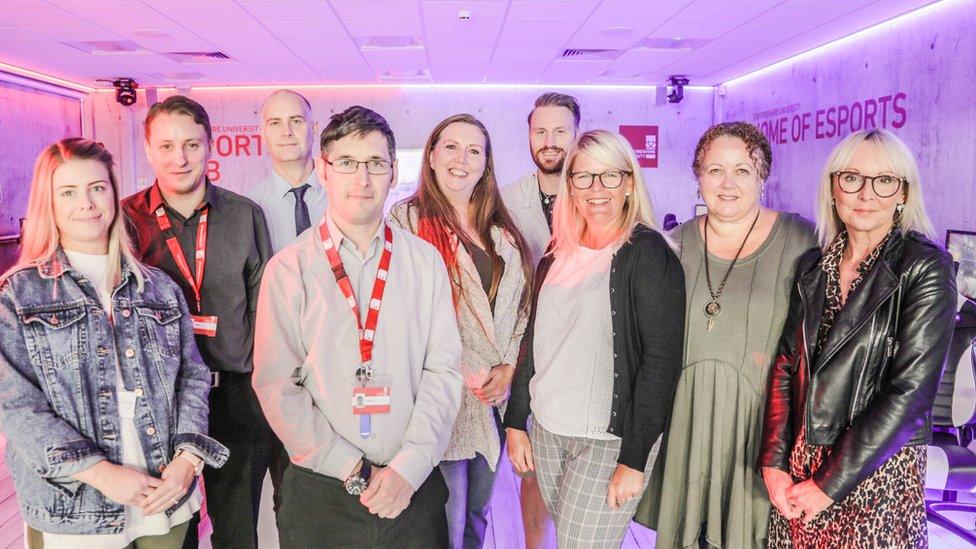
Stuart Kosters, front, says he believes the course will help people find jobs
"With esports, I've always played games, always been interested in business and it is good to combine them," he says.
"In college, I was studying game design and I picked up my first esport, League of Legends [a team-orientated strategy game], which really hooked me.
"I went to a League of Legends, external competition, sat in the arena with all the other fans and thought: 'This is real, this is as big as any sport out there.'
"The atmosphere was incredible; for people who don't generally do something like watch sport, it captured the most passionate audience."
While studying for his MA, Mr Kosters has been exploring the economics of competitive gaming, what makes it the success it is and how it will change in the future. This, along with his involvement in the esports society, helped provide the inspiration for a dedicated course, external.

Danielle Morgan sees getting on the course as a "massive opportunity"
A big part of the three-year degree will be events organisation, with students expected to hold a large-scale expo in their third year.
One of the students who has just started the course, Danielle Morgan, believes it is a great time to embark on an esports degree.
"For me, gaming is about bringing people together, aside from the competitive aspect, and a lot of this course is about organising these big events," she says.
"If you look back 10 years ago not many people were doing a computing degree and now everyone's got a computing degree. The industry is rapidly growing and it is going to be the same.
"Already there is so much money in esports and it is about getting into it at the right time. Being able to do this course is definitely such a massive opportunity.
"There's a lot of misconceptions; obviously people think you are going to be playing games for three years but in actual fact the course is like a business degree but it is in a new industry.
"Give it five or 10 years a lot of people will have heard of it and it won't be so alien."

What is esports?
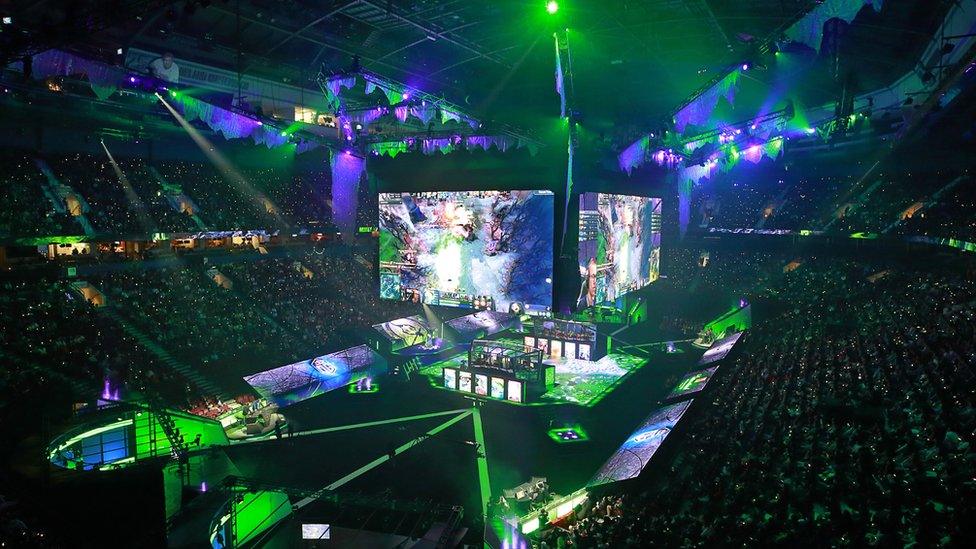
Dota 2 is one of the biggest games, along with League of Legends and Counter-Strike: Global Offensive, according to the British Esports Association
Esports - or electronic sports - is the umbrella term for organised, competitive computer gaming.
Esports consists of many different games - although those games don't necessarily mimic traditional sports.
Tournaments staged in front of live audiences can attract tens of thousands of fans, but online they are watched by tens of millions of viewers.
In 2014, more than 40,000 people attended the League of Legends World Championship finals when they were held in Seoul.
By 2016, the tournament attracted a record 43 million unique online viewers, with the winning team sharing $2.7m in prize money.

The course has the backing of Ed Vaizey MP, vice chair of the British eSports Association.
He said: "Esports is one of the fastest growing entertainment mediums in the world, and anything that can help the UK establish itself as a centre for this exciting industry should be celebrated."
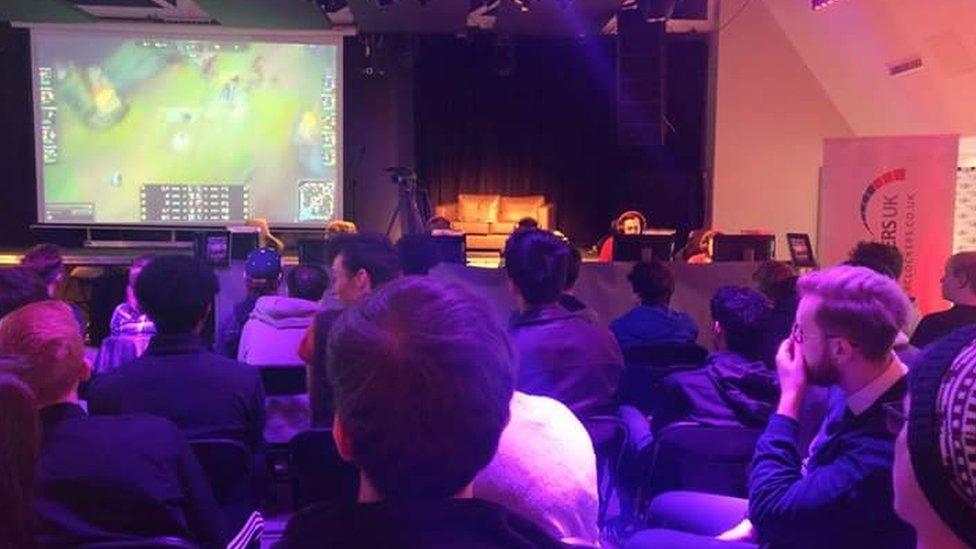
Staffordshire University's esports society has attracted big crowds, particularly to varsity games against neighbours Keele
The university's new degree course is in part a response to a white paper on driving esports events in the UK, external.
"Plans to grow the UK as an esports hub bring huge opportunities in job creation and we are well placed as a university to explore that," says Dr Bobbie Fletcher, head of games and visual effects at Staffordshire University.
Rachel Gowers, academic dean for recruitment in the university's business school, believes there is now an understanding that studying esports is a legitimate business pursuit.

You might also like:

"Over 73% of those employed within esports are under the age of 35 and their skills are in demand," she says.
"Companies are looking for people who are entrepreneurial and tech-savvy and the industry is driving the creation of new jobs.
"Parents are the generation that have grown up playing computer games and there's now acknowledgement that it is a viable career route."
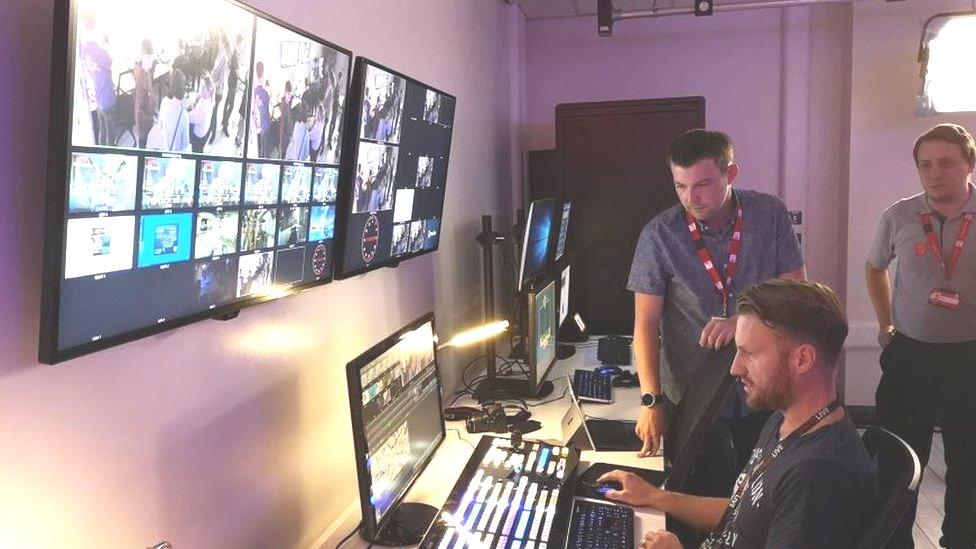
The university has had "no problem" filling the course
Even so, Mr Kosters admits it was something of a gamble to launch the course.
"We took a chance - it is always a challenge when you launch a new degree but we went through great networking with people in the industry - British Esports Association, external, Codemasters, Red Bull.
"Twitch, external [a video streaming platform, used by gamers] was a massive help; they gave us the knowledge we needed to move down a more academic route."
He says he feels the degree subject is as legitimate as any other and, while it appeals particularly to gamers, it's also attractive to anyone who wants to learn about the growing industry.
"It is the same as a film degree... every business is a business," he says.
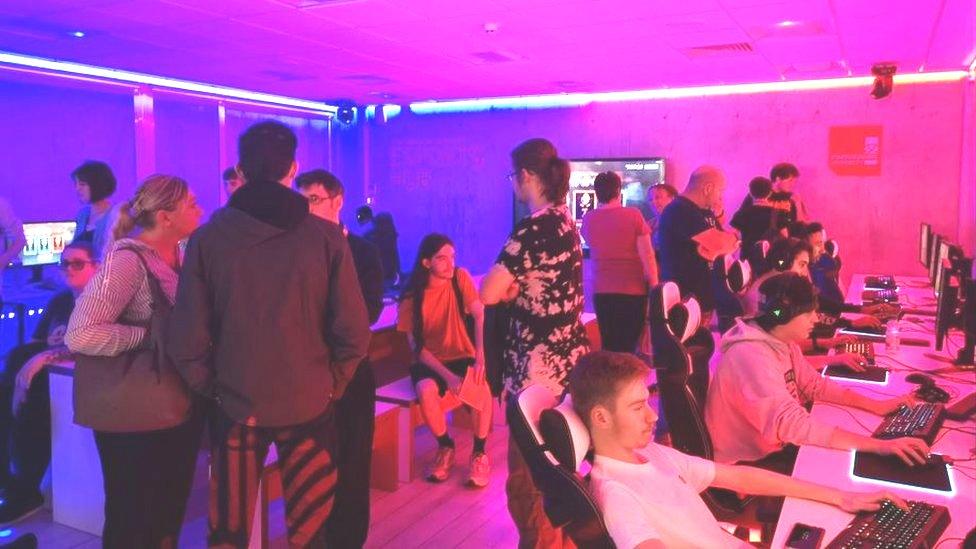
An "esports hub" has been created for students on the new course
"It has captured the attention of people who like games, like me, but want to be able to use the skills they have acquired.
"There has been lots of interest - there has been no problem filling the course. I don't know the exact numbers but it is over 100. It has gone above and exceeded expectations.
"One of the best stories has been at an open day, a father and son came.
"We were talking for five minutes, then 10 minutes, then 20 minutes, then the father said he wanted to apply.
"I believe he did, so the father and son will be taking the course together."
- Attribution
- Published1 August 2018
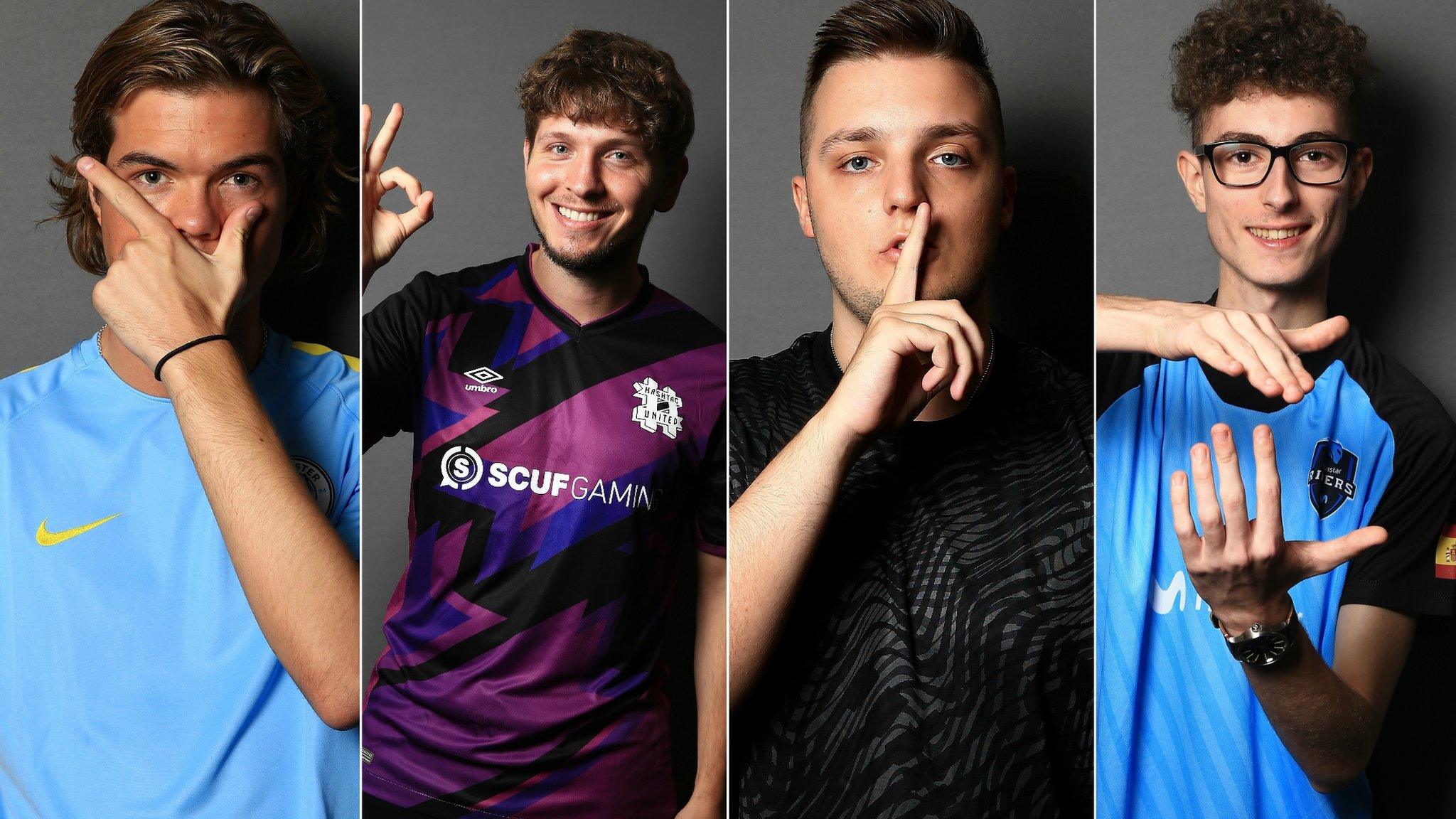
- Attribution
- Published31 July 2018
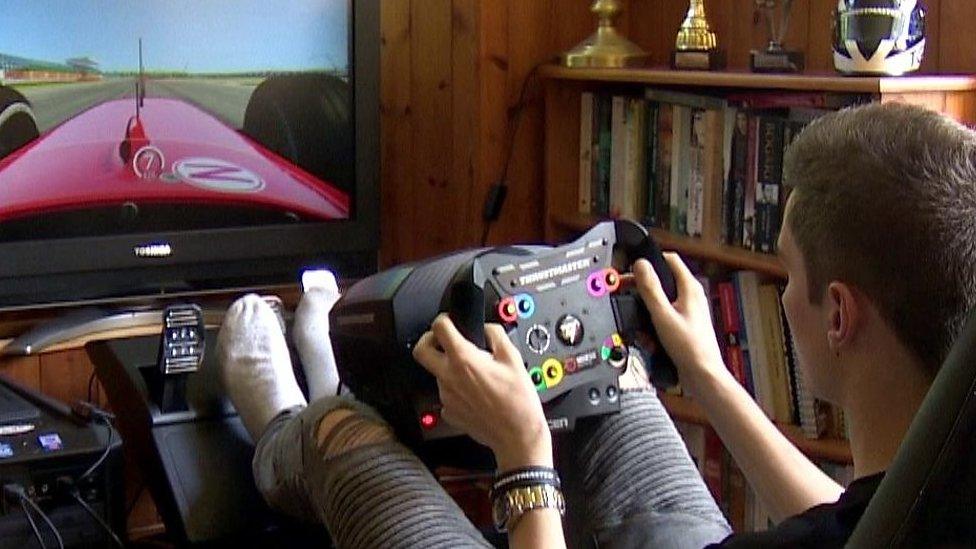
- Attribution
- Published5 July 2018
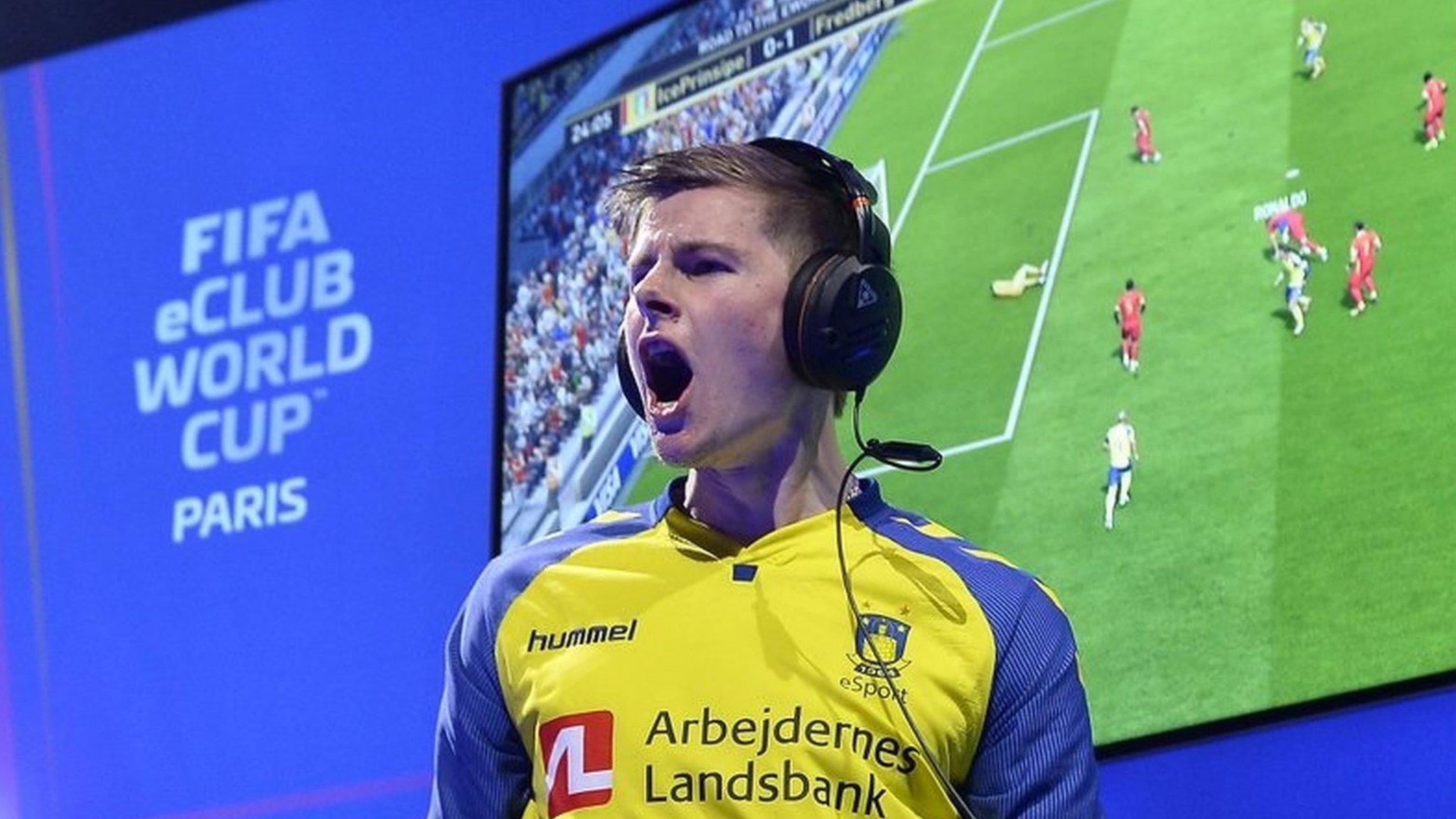
- Attribution
- Published25 April 2018

- Attribution
- Published13 April 2018
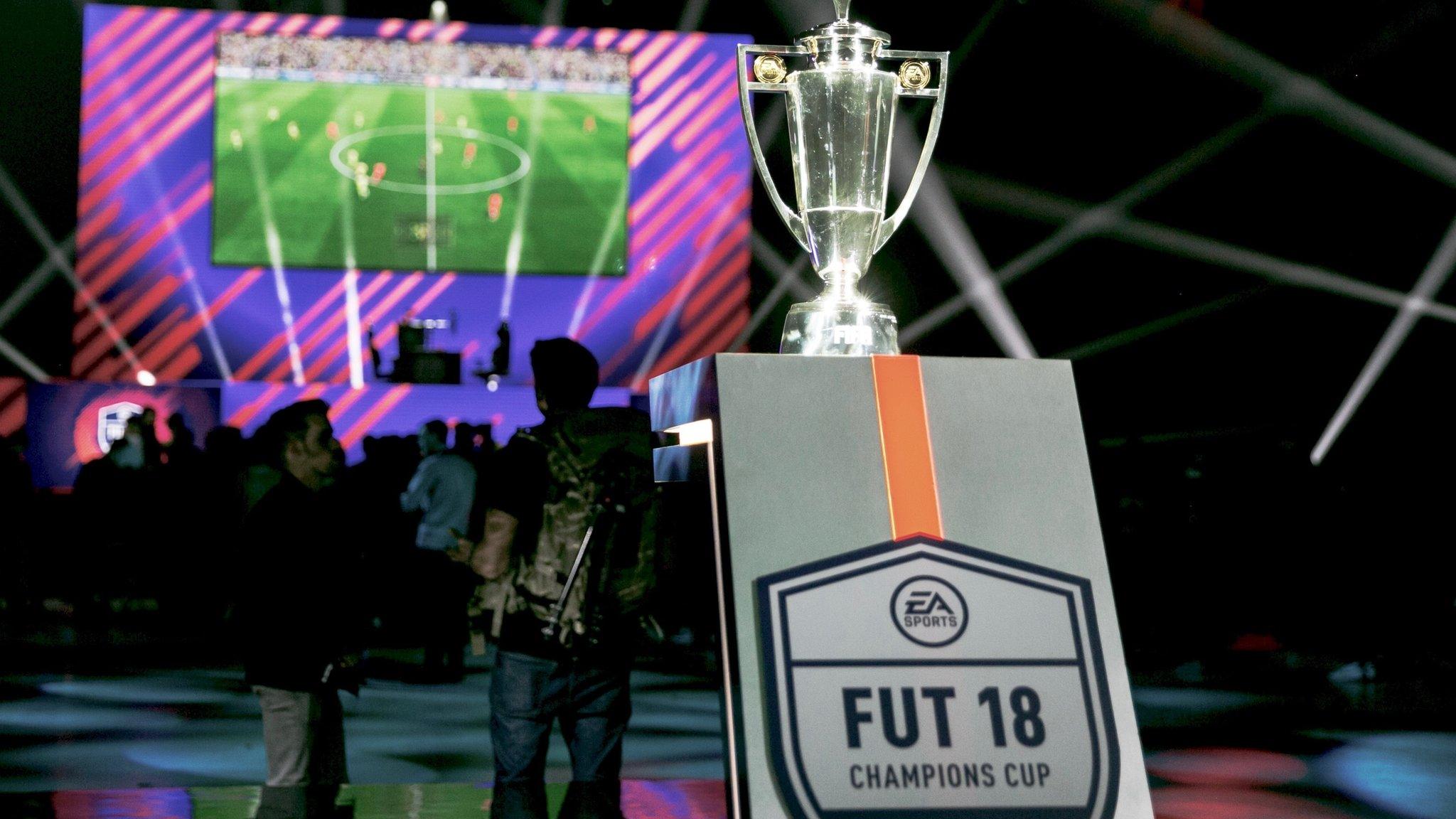
- Published14 February 2018
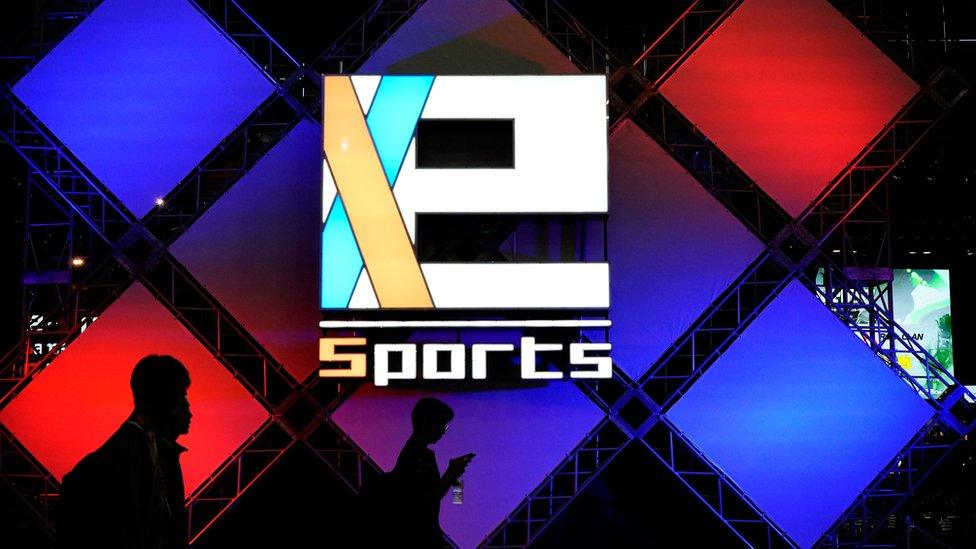
- Attribution
- Published28 October 2017

- Published6 April 2017
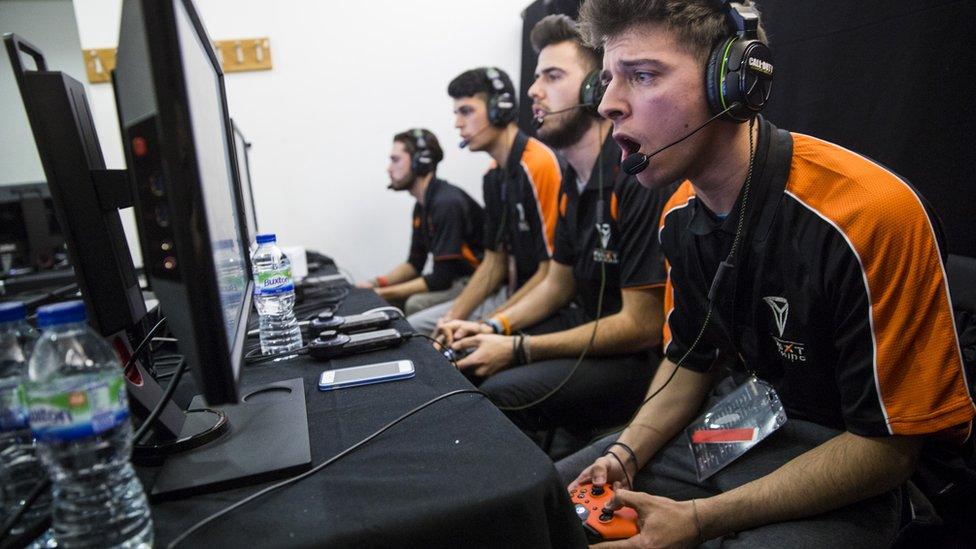
- Attribution
- Published21 March 2017
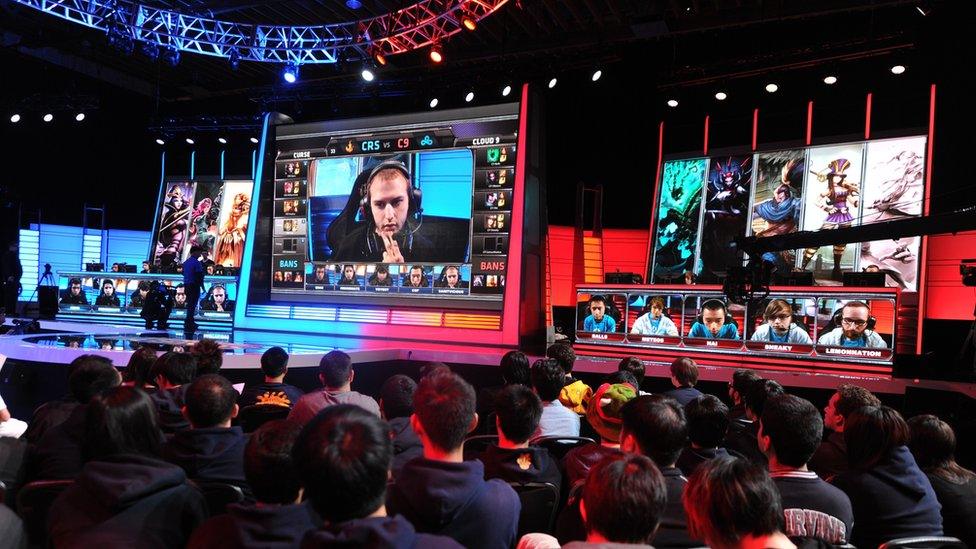
- Published28 December 2014
